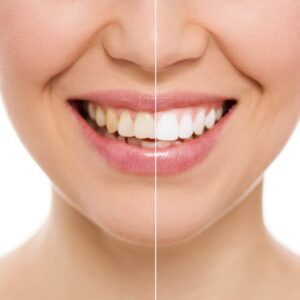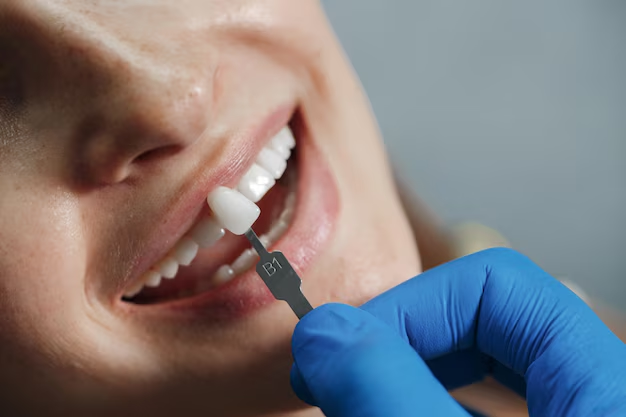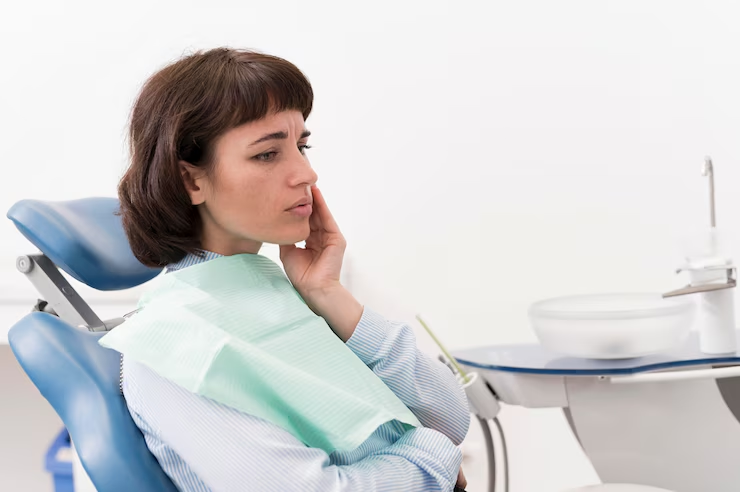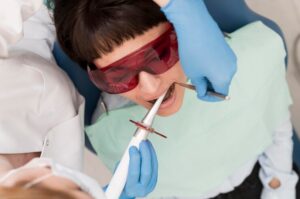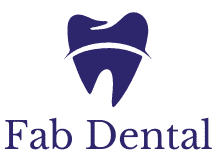Visiting an emergency dentist can be a daunting prospect, not least because of the potential cost involved. Sometimes called ‘urgent oral care’ or ‘immediate dental care’, these services are provided by dental professionals who specialize in treating oral issues that require immediate attention.
Emergency dentists are needed when oral health problems arise that can’t wait for a regular dental appointment. This might include a severe toothache, a knocked-out tooth, or other serious oral injuries. It’s important to understand that emergency dental services often come at a higher cost than regular dental services. This is due to the immediate nature of the care provided and the specialized skills required to treat such urgent cases.
The cost of an emergency dental visit can vary widely, depending on the treatment needed. Some common examples might include the price of emergency tooth extraction, the fees for emergency dental services, or the cost of immediate treatment at a dental emergency room. These expenses, also referred to as ’emergency dental charges’, can be significant, but they are necessary for maintaining oral health in critical situations.
Understanding the potential costs involved, such as emergency dental treatment costs or the fees for an emergency dental clinic, can help you prepare for such eventualities. It’s always worth remembering that preserving your oral health is an investment in your overall wellbeing.
It’s clear that the cost of visiting an emergency dentist can be quite high. However, it’s also clear that these services play a critical role in healthcare, providing urgent care and relief from severe dental pain when we need it most.
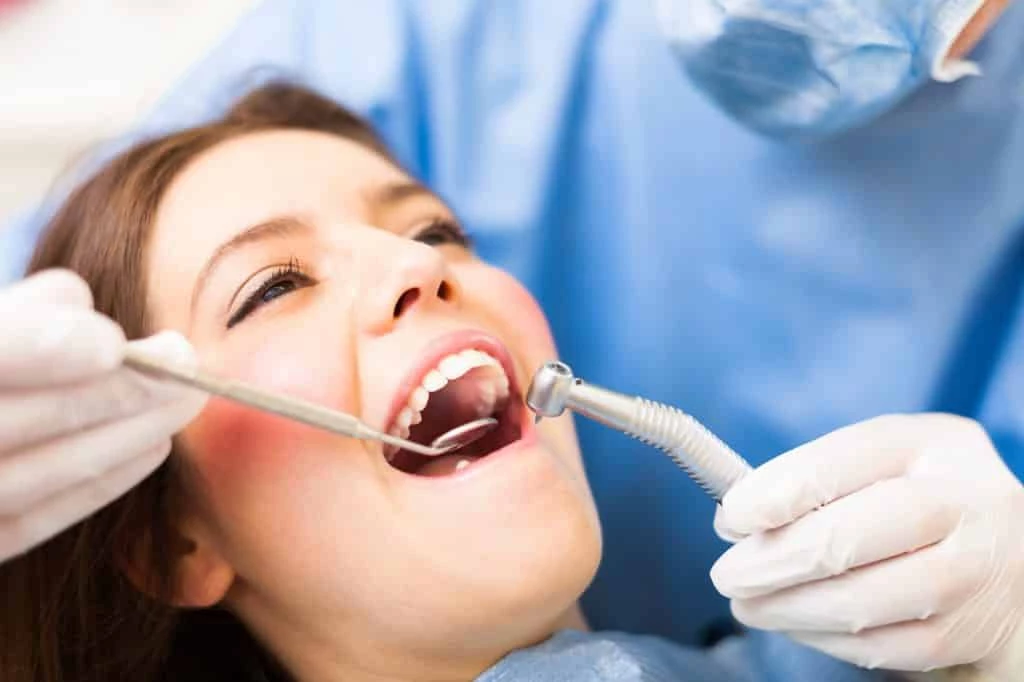
What is an Emergency Dentist?
An emergency dentist is a dental professional who is trained to handle any type of oral health crisis that may occur unexpectedly. These emergencies can range from severe toothaches to knocked-out teeth or extreme gum infections. The primary role of an emergency dentist is to provide immediate relief from pain and prepare a quick solution to prevent further damage or complications.
Emergency dentists are equipped to offer services beyond the regular scope of general dentistry. They are trained to handle complex procedures such as emergency tooth extractions, treating oral injuries, and performing root canals at a moment’s notice. When you’re dealing with sudden, severe pain, or when your oral health is at immediate risk, an emergency dentist is the professional you’ll need to see.
The cost of visiting an emergency dentist can be a concern for many. The charges for emergency dental services can vary, depending on the severity of the condition and the treatment required. Commonly, the price of emergency tooth extraction, immediate dental care, and other urgent treatments are higher than those of regular dental visits. This is largely due to the immediate care and specialized expertise required during these emergency situations.
However, patients should remember that the cost for urgent oral care should not deter them from seeking immediate help. Delaying treatment can lead to more severe health problems and even higher medical costs down the line. Emergency dental treatment costs are an investment in your health and wellbeing, ensuring that you receive timely care to alleviate pain and prevent more serious complications.
Cost of Visiting an Emergency Dentist
In the realm of dental care, emergencies can unfortunately be a common occurrence. This can often lead to unexpected costs that can vary depending on a number of factors. The cost of visiting an emergency dentist is not a fixed price and can range vastly based on the severity of your dental issue, the required treatment, and the location of the dental clinic.
Emergency dental charges can start from a basic consultation fee, which can cover diagnosis and initial treatment. This is often the minimum expense of an emergency dental visit. More severe dental emergencies, such as an urgent dental care for a severe toothache or an emergency tooth extraction, will naturally bear higher costs. These costs can further escalate if advanced procedures or surgeries are needed.
The location of the emergency dental clinic also plays a significant role in the overall cost. Clinics located in urban areas or cities often have higher fees compared to those in rural areas due to higher operational costs. Additionally, the cost for urgent oral care can be influenced by whether the dentist is in-network or out-of-network with your insurance provider, as out-of-network providers often have higher fees.
It’s important to note that while the price of an emergency dentist appointment can seem high, neglecting a dental emergency can lead to more severe health issues down the line, potentially requiring more extensive and expensive treatments. Therefore, immediate dental care, despite its cost, should always be a priority.
How Insurance Impacts the Cost
Dental emergencies can occur without warning, and the immediate need for treatment can lead to substantial charges. However, dental insurance can help mitigate some of these expenses, particularly the cost of emergency tooth extraction or the fees associated with an urgent dental care visit.
The level of coverage provided by dental insurance varies significantly depending on the specific plan. Some insurance plans may fully cover the cost for urgent oral care, while others might only pay a portion of the emergency dental charges. It’s essential to understand your insurance coverage to anticipate potential out-of-pocket costs.
For instance, an insurance plan might cover a substantial portion of the emergency dental services pricing, leaving the insured to only pay a small copayment. Conversely, some plans might have high deductibles or only cover routine preventive care, leaving the insured to shoulder the majority of emergency dental treatment costs.
It’s also worth noting that not all procedures are covered by insurance. Certain treatments, such as cosmetic procedures, might not be included in your plan. Therefore, if your dental emergency involves such treatments, you might find yourself bearing the full brunt of the immediate dental care charges.
Ultimately, dental insurance can significantly impact the cost of an emergency dental visit. Therefore, understanding your insurance plan’s specifics, including what it covers and the extent of coverage, is crucial in managing the costs associated with emergency dental care.
Additional Costs Associated with Emergency Dental Visits
When it comes to the cost of an emergency dentist visit, it’s important to understand that the quoted price often only covers the initial consultation. There can be several additional costs associated with emergency dental visits that you should be prepared for. These can significantly increase the total expense of emergency dental treatment, so it’s crucial to factor them into your budget.
The first type of additional cost you might encounter is for diagnostic tests, such as X-rays. Depending on the nature of your dental emergency, your dentist might need to take X-rays to fully understand the problem. The price of emergency tooth extraction, for instance, may increase if an X-ray is required to assess the extent of the damage or infection.
Medication is another potential additional cost. If you have an infection, you may need to purchase antibiotics before or after your treatment. Painkillers might also be necessary, especially after procedures like tooth extractions or other invasive treatments.
Additionally, emergency dental visits often necessitate follow-up appointments. These visits, which typically involve checking the healing process and removing stitches, add to the overall cost for urgent oral care. It’s also worth noting that if your dental problem is complex, you may need to see a specialist, and specialist visits are generally more expensive than general dentist appointments.
Lastly, if your dental emergency happens outside of regular office hours – for instance, in the middle of the night, on a weekend, or on a holiday – you may be charged an out-of-hours fee. This is because providing dental care outside of regular hours often requires the dentist and their staff to work overtime, which incurs extra costs.
In conclusion, while the initial emergency dentist fees might seem manageable, the total cost of immediate dentist visit can quickly add up when you factor in these additional expenses. It’s essential to be aware of these potential costs so you can be financially prepared for your emergency dental visit.
Emergency dental care is undeniably more expensive than regular check-ups. However, the cost of neglecting a dental emergency could be far greater, not only for your wallet but also for your overall health. Immediate intervention can save a tooth and alleviate unnecessary pain,
Dr. Guneet Alag, DDS, FAGD, Fab Dental, Hayward, CA.
Ways to Reduce the Cost of Visiting An Emergency Dentist
Emergency dental charges can be a significant financial hit, especially if you’re not prepared for them. However, there are several strategies to consider that could help minimize your out-of-pocket expenses. Here are some ways to reduce the cost of these unexpected dental visits:
Using Dental Insurance: Most dental insurance plans partially cover emergency services, which can considerably lower the price of emergency tooth extraction or other treatments. Before seeking treatment, it’s essential to understand your policy’s coverage for emergency dental services. If your insurance doesn’t cover enough, it may be worth considering supplemental dental insurance.
Seeking Treatment at Dental Schools: Dental schools can be an excellent place to receive high-quality dental care at a fraction of the cost of a private practice. While the students performing procedures are still in training, they are supervised by experienced faculty members. The cost for urgent oral care at these institutions can be significantly less than at a regular dentist’s office.
Utilizing Community Health Centers: Many community health centers offer dental services and charge on a sliding scale based on income. These centers can be a lifeline for those with limited resources, as the emergency dental clinic fees can be much more affordable.
Negotiating Prices: In some cases, you may be able to negotiate the price of emergency dentist appointment, especially if you’re paying out of pocket. Some dentists are willing to work out a payment plan or offer a discount for immediate payment.
Preventive Care: The best way to avoid the cost of immediate dentist visit is to practice good oral hygiene. Regular check-ups, cleanings, and early treatment can prevent most dental emergencies, ultimately saving you money in the long run.
Options When you Can’t Afford an Emergency Dentist
The cost of emergency dental treatment can be overwhelming, especially if you are uninsured or underinsured. However, options exist for those who find the charges for urgent dental care prohibitive. Here are several alternatives and resources to consider:
Reduced Rates: Some dentists and dental clinics offer services at reduced rates based on your income. These establishments work on a sliding scale, where the price of the emergency tooth extraction or the cost of the immediate dentist visit is adjusted according to your ability to pay.
Community Health Centers: Community Health Centers funded by the federal government can provide emergency dental treatment at lower costs. Their fees for emergency dental services are typically lower than private clinics. Check if there’s one in your area and inquire about their dental services pricing.
Free Clinics: Free clinics, often run by nonprofit organizations or local health departments, can provide emergency dental care at no cost or at a nominal fee. These clinics are particularly helpful for the uninsured, but be prepared for potential long waits due to high demand.
Payment Plans: Some dental clinics offer payment plans that allow you to pay for your dental urgent care expenses over time. These plans can make the cost for urgent oral care more manageable. Always make sure to read the fine print and understand all the terms before signing up for a payment plan.
Financial Assistance Programs: There are financial assistance programs available that can help offset emergency dental charges. These programs, often sponsored by government agencies or nonprofit organizations, can provide grants or loans to help cover the cost of emergency dental visits.
Remember, delaying dental care because of costs can lead to worsening conditions and potentially higher expenses in the future. Explore these options to ensure you receive the necessary treatment without breaking the bank.
Preventive Measures and Financial Preparation
Prevention is always better than cure, especially when it comes to dental health. Regular check-ups can help prevent some dental emergencies, keeping the emergency dental charges at bay. Not only can regular check-ups spot potential problems before they become serious, but they can also save you from the high price of emergency tooth extraction or other urgent dental care costs.
Financial preparation is equally important to tackle the unexpected cost for urgent oral care. It is always a good idea to have a separate emergency fund, specifically for health-related issues. This fund can cover the expense of an emergency dental visit or account for emergency dentist fees when the need arises. Including dental insurance in your health policy can also ease the burden of emergency dental services pricing.
However, it’s important to understand that not all dental emergencies can be prevented. Accidents happen and when they do, it can lead to immediate dental care charges. In such cases, having a financial plan in place can make a big difference.
Remember, being proactive about your dental health and having a solid financial plan can save you from unnecessary stress and high emergency dental treatment costs.
Conclusion
Understanding the cost associated with visiting an emergency dentist is crucial, especially when an urgent oral care situation arises unexpectedly. The charges of emergency dental services can vary widely, depending on the severity of the situation, the specific treatment required, and location of the dental clinic. It’s important to know that the price of an emergency tooth extraction could be different from other dental procedures.
Insurance plays a pivotal role in managing these costs. It can significantly reduce the immediate burden of emergency dentist fees, but it’s vital to understand what your insurance covers and what out-of-pocket expenses you might be responsible for. For instance, the expense of an emergency dental visit could be partially covered by your insurance, reducing your out-of-pocket costs.
Preventive measures and financial preparation are key to managing emergency dental treatment costs. Regular dental check-ups can help prevent the need for urgent dental care, thereby avoiding the high costs associated with it. Furthermore, setting aside an emergency fund or exploring dental discount plans can help manage the price of an emergency dentist appointment or the cost of an immediate dentist visit.
In conclusion, the cost for urgent oral care can be substantial, but with a clear understanding of the cost structure, the role of insurance, and adequate financial preparation, it can be managed effectively.
Frequently Asked Questions
What is an emergency dentist?
An emergency dentist is a dental professional who is available to treat urgent dental issues outside of regular office hours, including weekends and holidays. These issues may include severe toothache, knocked-out teeth, broken or cracked teeth, or severe infections.
How much does it cost to visit an emergency dentist?
The cost of visiting an emergency dentist can vary greatly depending on the treatment required. However, on average, the cost can range from $100 to $1,500. It's important to note that these are just average amounts and the actual cost can be higher or lower.
Does insurance cover the cost of visiting an emergency dentist?
Dental insurance often covers some costs associated with emergency dental care, but it depends on the specific insurance plan. Some plans only cover routine check-ups and cleanings, while others cover a wider range of treatments. It's always best to check with your insurance provider before assuming coverage.
Are there any additional costs involved when visiting an emergency dentist?
Yes, there may be additional costs involved when visiting an emergency dentist. These could include costs for X-rays, medication, aftercare, or any other additional treatments required.
Why is visiting an emergency dentist more expensive?
Visiting an emergency dentist can be more expensive due to the urgent nature of the care. This often requires the dentist to see you outside of regular office hours, which can come with additional charges. Moreover, emergency dental issues often require more complex treatments than routine check-ups.
Is there a way to reduce the cost of visiting an emergency dentist?
One way to potentially reduce the cost is by having a comprehensive dental insurance plan that covers emergency services. Also, some dental offices may offer payment plans or discounts for those who pay out of pocket. It's worth asking about these options.
Is the cost of visiting an emergency dentist worth it?
If you're experiencing severe pain, have lost a tooth, or have another urgent dental issue, visiting an emergency dentist can prevent further complications and potentially save you time and money in the long run. Leaving dental issues untreated can lead to more serious health problems that could be far more expensive to treat.
Can I negotiate the cost with the emergency dentist?
It can be difficult to negotiate costs at the time of treatment due to the urgent nature of the visit. However, some dentists may be willing to discuss payment options or plans to help manage the cost.
What if I can't afford the cost of visiting an emergency dentist?
If you can't afford the cost, you could consider visiting a dental school clinic, where treatment is often less expensive. Alternatively, you could look for local health organizations that offer free or low-cost emergency dental care. It's also worth discussing your situation with the dentist; they may be able to suggest alternative treatment options or payment plans.
What types of payment does an emergency dentist accept?
Most emergency dentists accept a variety of payment options including cash, credit and debit cards, personal checks, and dental insurance. Some may also offer financing options or payment plans.

